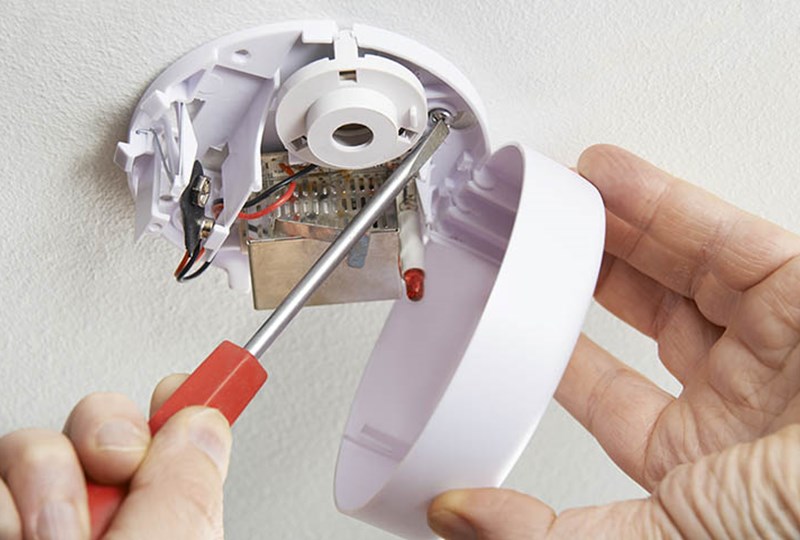
Key insights
- Minnesota homeowners in 18 metro cities will need to get a professional seller inspection before they sell their home.
- Each city that requires a TISH inspection has their own terms and costs. Be sure to follow them to the letter.
- There are ways to prepare your home for a TISH inspection, including checking common plumbing elements and smoke detectors.
What is a “Truth-in-Sale of Housing” Inspection?
In certain cities in the Twin Cities metro, a seller inspection is required before the home can be sold. This inspection is often called the “Truth-in-Sale of Housing” (TISH) report, or a “truth in housing” report.
Unlike a buyer’s inspection, which can hone in on quirks or inconsistencies, the TISH report is focused on risks to life or health that can be found within the home. The report is usually made up of a checklist of recommended or required fixes.
Once sellers receive their TISH report, they must complete the required fixes before closing. In some cases, if they aren’t able to complete the checklist of necessary repairs, the seller may negotiate with the buyer, who can perform the repairs post-close.
Buyers should be well aware of what the TISH report outlines, as sellers are typically required to include the report within their disclosures to potential buyers.
What cities in Minnesota require a TISH inspection?
While the exact name and requirements of the inspection may vary from one city to the next, these Minnesota cities currently require sellers to get a TISH inspection (or similar report) from a licensed evaluator:
- City of Bloomington Time-of-Sale Housing inspection
- City of Columbia Heights Time of Sale Program
- City of Maplewood Truth-in-Sale of Housing report
- City of Minneapolis Truth-in-Sale of Housing evaluation
- City of New Hope Point of Sale inspection
- City of Richfield Point of Sale Housing inspection
- City of Robbinsdale Point of Sale inspection
- City of St. Louis Park Property Maintenance inspection
- City of St. Paul Truth in Sale of Housing disclosure report
- City of South St. Paul Time-of-Sale Housing inspection
Several cities don’t require a traditional TISH inspection, but they do require sellers to order an inflow/infiltration inspection to check for excess flow of clear water into the city’s sewer system:
- City of Duluth Inflow and Infiltration Inspection
- City of Golden Valley inflow and infiltration inspection
- City of Mounds View H2OPP Program
- City of Newport Sewer Inspection
- City of Orono inflow and infiltration inspection
- City of St. Anthony Village inflow and infiltration inspection
- City of Tonka Bay inflow and infiltration inspection
- City of West St. Paul inflow and infiltration inspection
How to prep for a Truth in Sale of Housing inspection
According to this WCCO story, there are some common repairs that homeowners should address before their TISH inspection.
1. Look for missing backflow preventer for faucets
Check to make sure your outdoor faucets have backflow preventers or vacuum breakers. As a local inspection expert explains here, these valves ensure that water coming from your outdoor faucets only flows out and that any contaminated water that comes into contact with the hose doesn’t flow back into the city’s water supply.
For example, if you are filling a bucket with bleach and water, you only want the water flowing out — it could contaminate drinking water if the bleach flowed back through the faucet and into your home’s or your neighborhood’s water supply.
Depending on the city, missing backflow preventers could be marked as a required fix on a TISH report.
2. Check smoke alarms
When was the last time you checked your smoke alarms — aside from when you charred that pizza last year? Give each alarm in your house a test or replace the batteries in each to be safe.
You’ll also want to check your city requirements to ensure you have the legally required number of smoke detectors in your home. Many cities require a smoke alarm on every level and outside each sleeping area.
3. Test for leaky plumbing
The WCCO report suggests filling up a sink or tub, then pulling the stopper out and watching the pipes to make sure you don’t have any plumbing issues. You should do this for all sinks and tubs, including laundry sinks or industrial tubs that you don’t use that often. If a pipe is leaking just a little bit, you may be able to fix it with a basic wrench tightening.
Need help getting a TISH inspection?
Our agents are local experts, and they can offer insights on how to hire a licensed local evaluator and the prep work you should put in before your TISH inspection. Contact Edina Realty or your REALTOR® for customized, local advice.









 ©2026 Prosperity Home Mortgage LLC®. (877) 275-1762. 3060 Williams Drive, Suite 600, Fairfax, VA 22031. All first mortgage products are provided by Prosperity Home Mortgage, LLC®. Not all mortgage products may be available in all areas. Not all borrowers will qualify. NMLS ID #75164 (For licensing information go to: NMLS Consumer Access at
©2026 Prosperity Home Mortgage LLC®. (877) 275-1762. 3060 Williams Drive, Suite 600, Fairfax, VA 22031. All first mortgage products are provided by Prosperity Home Mortgage, LLC®. Not all mortgage products may be available in all areas. Not all borrowers will qualify. NMLS ID #75164 (For licensing information go to: NMLS Consumer Access at